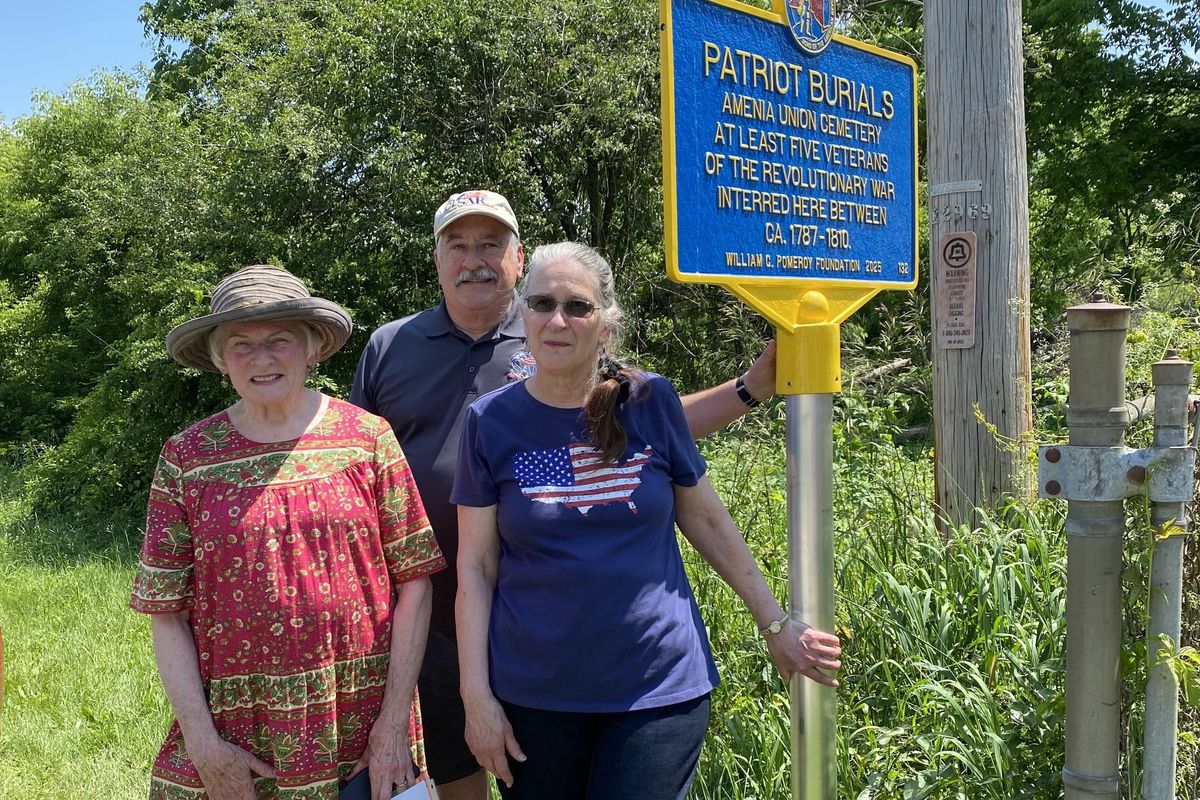Students exemplify ‘Youth in Democracy’ with year-long community projects

HVRHS junior Alex Wilbur, left, and Brian Bartram, manager at the Salisbury-Sharon Transfer Station, checked out the blue bin that will be used starting this spring to collect empty prescription bottles as part of Wilbur’s Youth in Democracy community project.
Debra A. Aleksinas
 Daniel Moran, second from right, with the drone the HVRHS sophomore donated to the North Canaan Fire Company as part of his Youth in Democracy project.Moran is shown here with the town’s first selectman, Brian Ohler, right, Assistant Fire Chief Patrick McGuire, center, and David Moran, Agricultural Education Department Chair at the high school, left. Debra A. Aleksinas
Daniel Moran, second from right, with the drone the HVRHS sophomore donated to the North Canaan Fire Company as part of his Youth in Democracy project.Moran is shown here with the town’s first selectman, Brian Ohler, right, Assistant Fire Chief Patrick McGuire, center, and David Moran, Agricultural Education Department Chair at the high school, left. Debra A. Aleksinas








 Photo provided
Photo provided





